This blog post was written by Marina Loch. Marina originally came to Estonia for the Erasmus exchange semester during her undergrad studies, but loved it so much that she is now doing Veterinary Medicine PhD at Estonian University of Life Sciences.
How can we manage to enjoy our lives away from the university assignments but still make good progress? What I will talk about here is nothing new. But it seems that so many of us need a reminder every once in a while.
“Being an adult means thinking that soon, there will be a less stressful time, and then you die”, I read on Twitter. I’m stressed. As a PhD student, there is always so much to do. As a master`s student, you’re also always stressed. Even as a bachelor student, juggling classes, assignments, and a job, it’s all very demanding (read this post about juggling studies and a job).
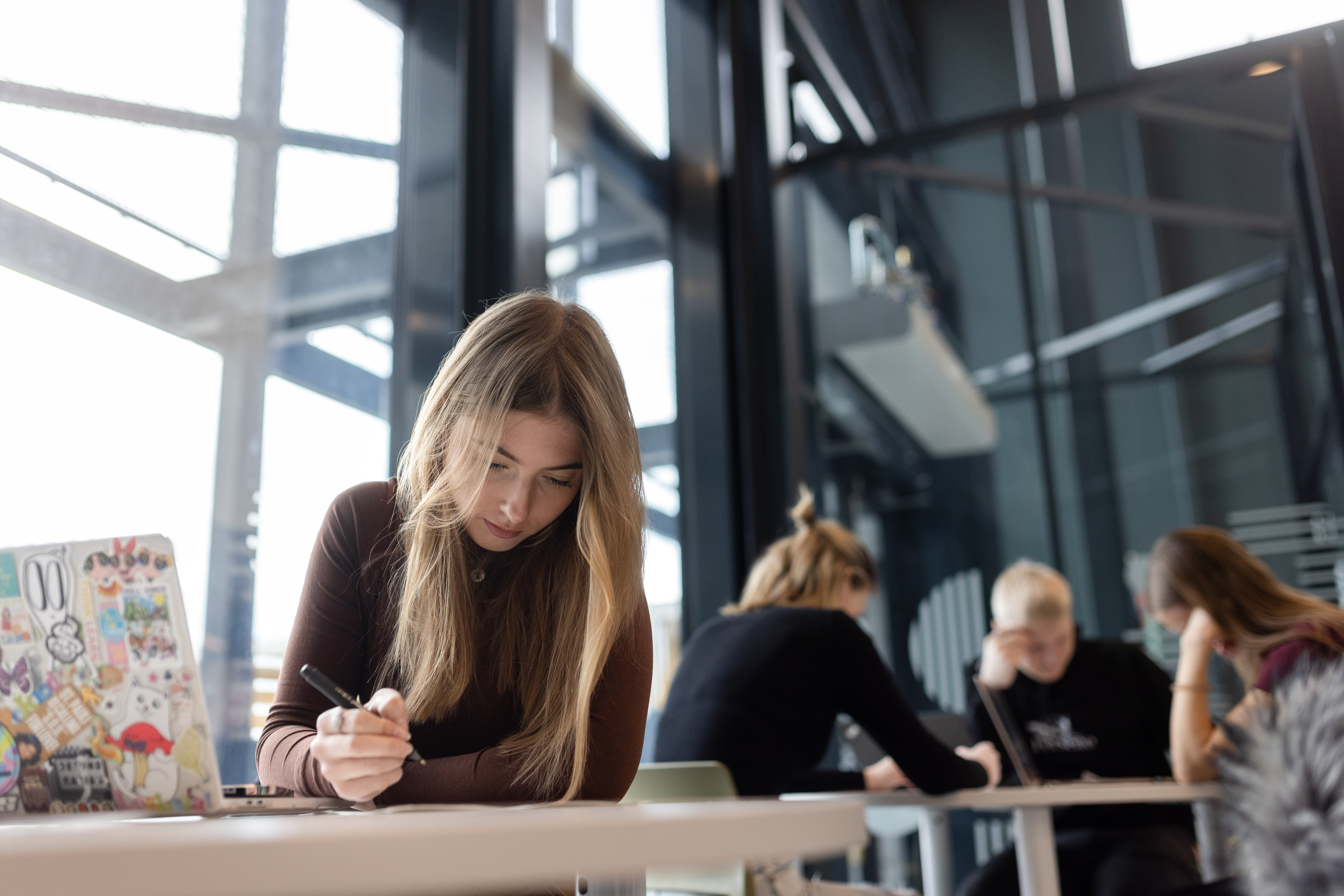
Photo credit: Renee Altrov
When I was hanging out with some friends from my faculty, someone asked what we were doing aside from work, and everybody sighed. Those with family, especially small children, sighed the loudest. My fellow PhD student pointed at me. “Marina has a life; I believe she’s the only one.” While I’m sure that is not really true, I knew what she meant. Yoga, music school, dance classes, spending weekends in the countryside with friends… that does seem like more leisure activities than the others have. So how did I manage, while I feel like all I do is writing my thesis and sleep?
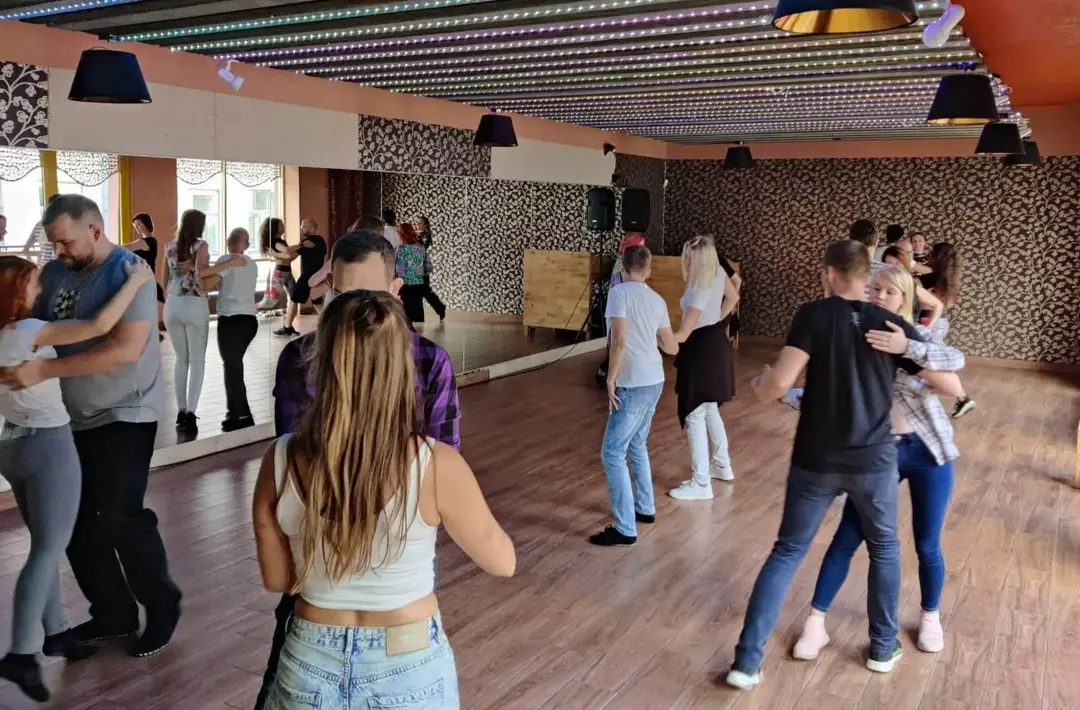
Photo credit: Margarita Ibezim
During my times as an exchange student (in high school and in my masters), I learned a great lesson about work-life balance. Do you know that feeling, when you come to a new place and everything is exciting, and you want to see and do as much as you can? That’s what I did. I went to all the parties, tried new sports, joined events, and travelled to interesting places whenever I could. But my grades weren’t any worse than before, in fact, they actually improved. Back home I had gone to classes, come home, studied, maybe gone for a quick run, and then fallen asleep to Netflix or Youtube. Where was I suddenly taking all this free time from? While I was still managing to study enough to have good grades?
Well, if you have ever heard a minimalism or productivity podcast, you have probably heard of this phenomenon called Parkinson’s law: "Work expands so as to fill the time available for its completion." It has also been rephrased as “If you wait until the last minute, it only takes a minute to do”, and while that is bad advice in itself, it does tell us something. If we have less time, then instead of getting up to get a new cup of tea every hour, stopping to chat with people in the hallway, and getting lost in unnecessary details about marginal topics related to the assignment, checking the phone again and again, we sit down, focus on the important stuff, and get the task done.
Of course I’m not saying we should all stress ourselves, not get up to eat and drink, or talk to the people around us. What I am saying is that when you want to be good at what you do, studying for an exam or writing your thesis, the important thing is not for how long you do it, but how well you use your time.
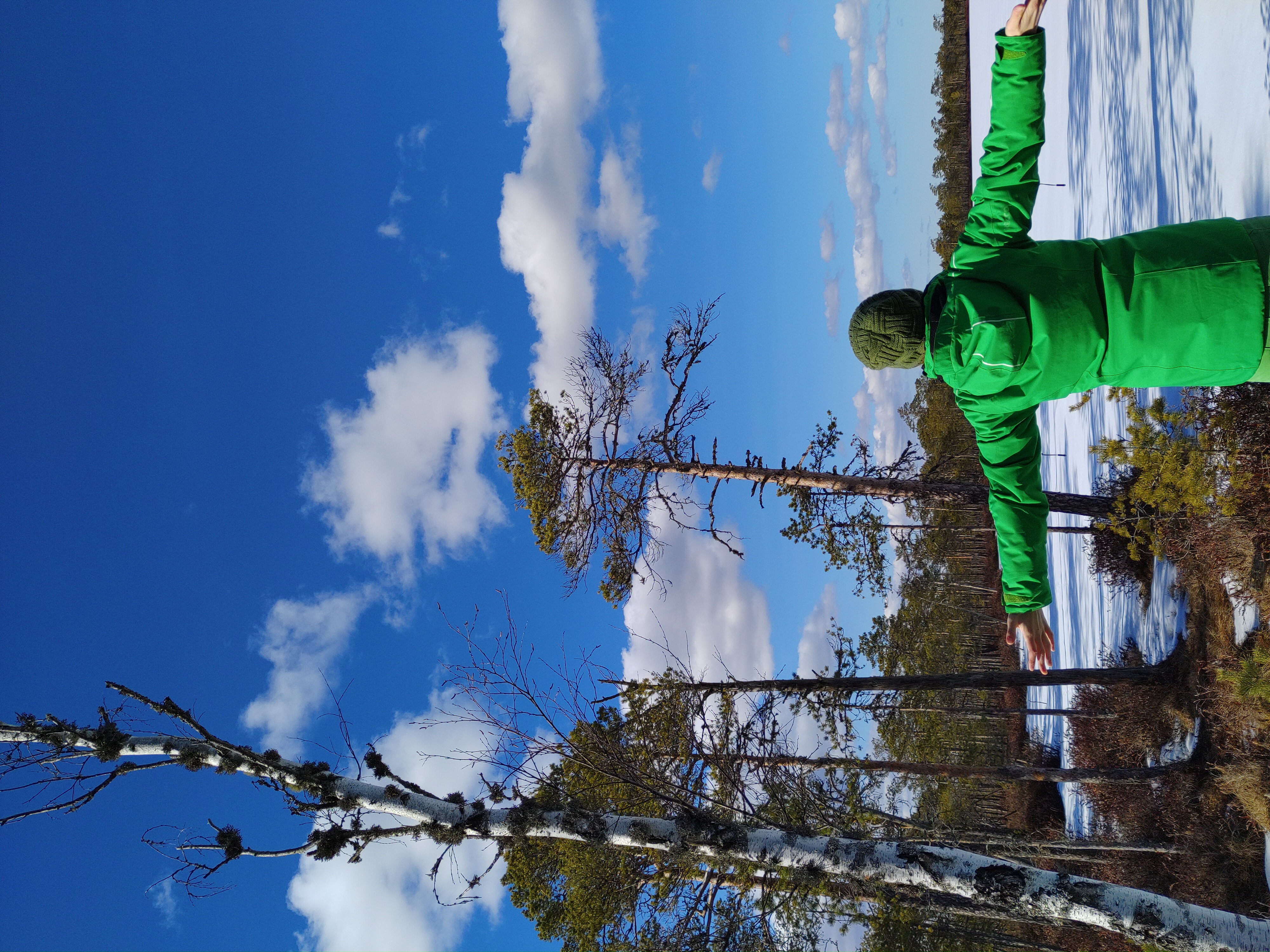
Photo: spending my time in nature (Meenikunno bog)
And actually, that’s where it gets exciting. You don’t need to get more efficient first, and once you’ve mastered that, you’ll have time for other things. I did it the other way around, and that made it a lot easier.
Attend that event you want to go to. Join that class. Take time to meet friends, to dance, to sit in the sun or the sauna, walk a dog, drink a coffee without reading a textbook, to work out.
Especially good are of course the things where you don’t sit around. That way, you will not only relax your brain, but also exert your body. But most importantly - during those times, when you do things that have nothing to do with your thesis, let youself go. Don’t think about your tasks. Don’t feel guilty for shutting down the computer at five o’clock “already”. Just be in the moment. Feel the music. Feel your feet on the floor, the strength of your muscles, the sun in your face. This is how you refresh your brain. This is how you will be able to fall asleep in the evening and wake up ready to get back to your task.
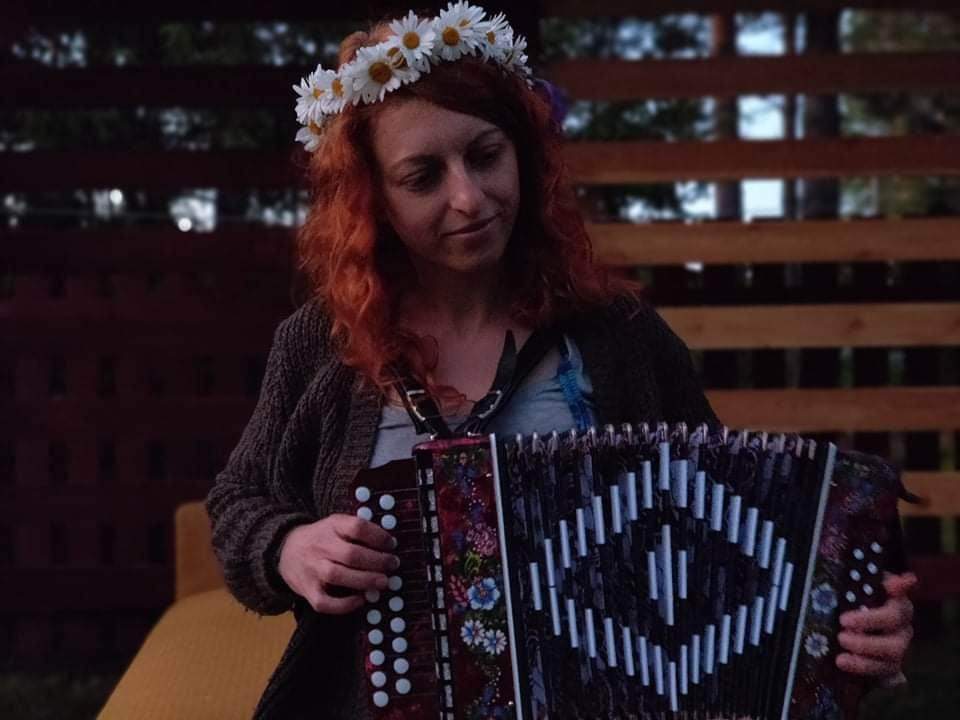
Photo: playing karmoška
Just dealing with my thesis and not allowing myself to do anything else makes me tired. And then I’ll come home, tired, and mindlessly watch a movie and scroll my phone. My brain is so tired, but my body actually isn’t, because I just sat behind a computer all day. So I feel guilty for not working longer, not be able to fall asleep, start the next morning still feeling groggy, and I’ll be slow, it’ll be exhausted, I’ll feel guilty for not being more productive – entering a vicious cycle.
Instead, I move my body a little bit already in the morning. If you’re a morning person, that can be anything, going for a run, hitting the gym before starting “the grind”. If you’re not so much a morning person (I’m certainly not!), then how about some stretches, 10 minutes of yoga, or just cycling to university instead of taking the bus?
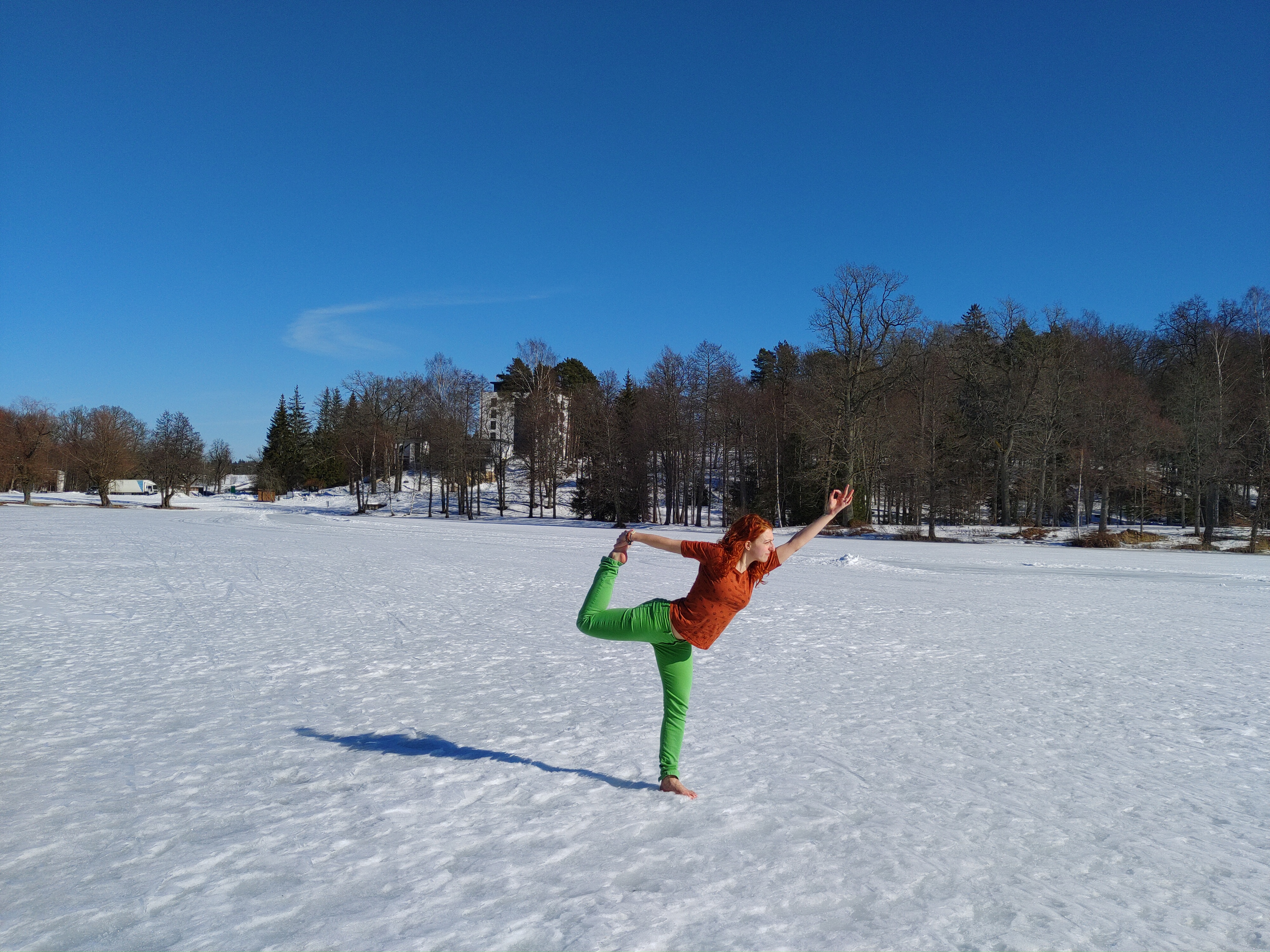
Then I work, and I try not to get distracted. Breaks should be real breaks, not “feeling-guilty-while-scrolling-phone” breaks, or eating lunch while reading a paper. And when I’m done with what I had planned for the day, I leave. I leave my computer at my desk, and I go to music school. I focus on something completely else. My brain gets to do something else, without any guilt. I attend my dance class, and I forget everything that has to do with my PhD.
Just as the days for resting are crucial if you want to improve in a sport, days for resting are crucial for the brain to keep going. Resting the brain means exercise, sleep, and doing things you love, which often have nothing to do with your thesis.
In the end, I don’t have a life aside of my PhD because I’m somehow more efficient than others. Quite the other way around. I have a life outside the university, and that gives my brain the rest it needs to work efficiently.
So, the answer to the question in the title is ridiculously simple: If you want to have time for other things than your thesis, you just have to take it. And by doing that, you automatically trick yourself into being more efficient, so that you really have time to do the things you want.
Never be afraid to go on an adventure, or learn something new and unrelated to your field of study!
Written by Marina, Study in Estonia student ambassador from Estonian University of Life Sciences.
Find YOUR study programme from our programme's page.
Read more blog posts:
